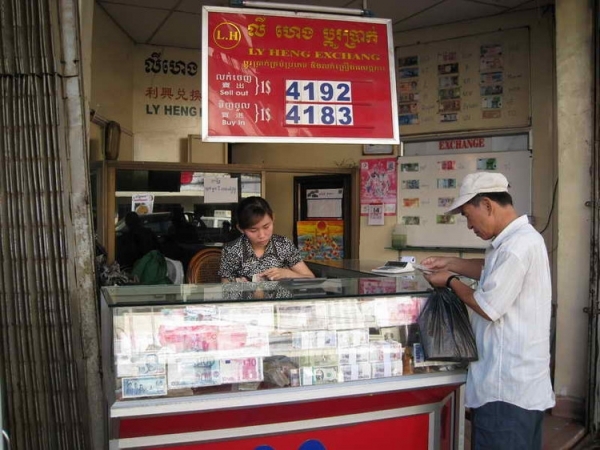This week’s edition of the EO featured an article about the growing volume of transactions in south east Asia using yuan. We asked our exchange journalists to write about their own experiences.
Five facts about the yuan [Chinese]
* In north Vietnam, the yuan is more popular than dollars, and accepted in restaurants, hotels, supermarket and bars.
* In noth Lao, yuan are called “little dollars.”
* In north Cambodia, some developers encourage Chinese to pay for real estate in yuan.
* In north Myanmar, the yuan is even used by the local government to pay soldiers. Taxes are also collected in the currency.

LAOS
“Visitors from China can rely on yuan for their daily spending,” said one student who lives near Laos’s northern border with China, where investment from Asia’s biggest economy has soared in recent years.
“They can pay for food and other necessities in yuan as well as hotels,” he said, asking not be named.
The student, who is now studying on a Laos government program in Beijing, said that traders from China come over the border to buy maize and rubber, paying the Laos producers in yuan.
Laos’s merchants also use the Thai Baht as an alternative to Kip, but the US dollar is less popular, since it comes in denominations that are too large for many of their transactions.
It’s different further south.
Vientiane restaurant owner Souknilundon Southivongnorath only accepts Kip, Baht or US dollar.
“We’re not get used to the yuan, we don’t know how to distinguish between fake and real banknotes,” he said, adding that it’s so hard to exchange yuan for kip in the capital.
(Souksakhone Vaenkeo)
PHILIPPINES
In the Philippines, banks last year started offering yuan-denominated saving accounts. They’re now available at six of the country’s largest banks, such as China Banking Corp., which requires a minimum balance of 2,500 yuan, and says the service is partly for China-based Filipinos sending requirements home.
The country’s central bank has even said that it is considering adding yuan-denominated bonds to its reserves of dollars, euros, yen, and gold.
Even so, there is caution among traders, wary of the Chinese government’s control of the currency.
Michelle Wee, who runs a butcher in the southern city of Zamboanga City, says she has many Chinese customers but they know better than to try to buy meat in yuan.
(Darwin Wally T. Wee)
VIETNAM
Under Vietnamese law, people who live near the country’s border with China can use the currency for in shops, gold dealers and at market stalls. Elsewhere in the country, however, Vietnamese can only exchange yuan in a handful of banks.
(Oanh Oanh)
